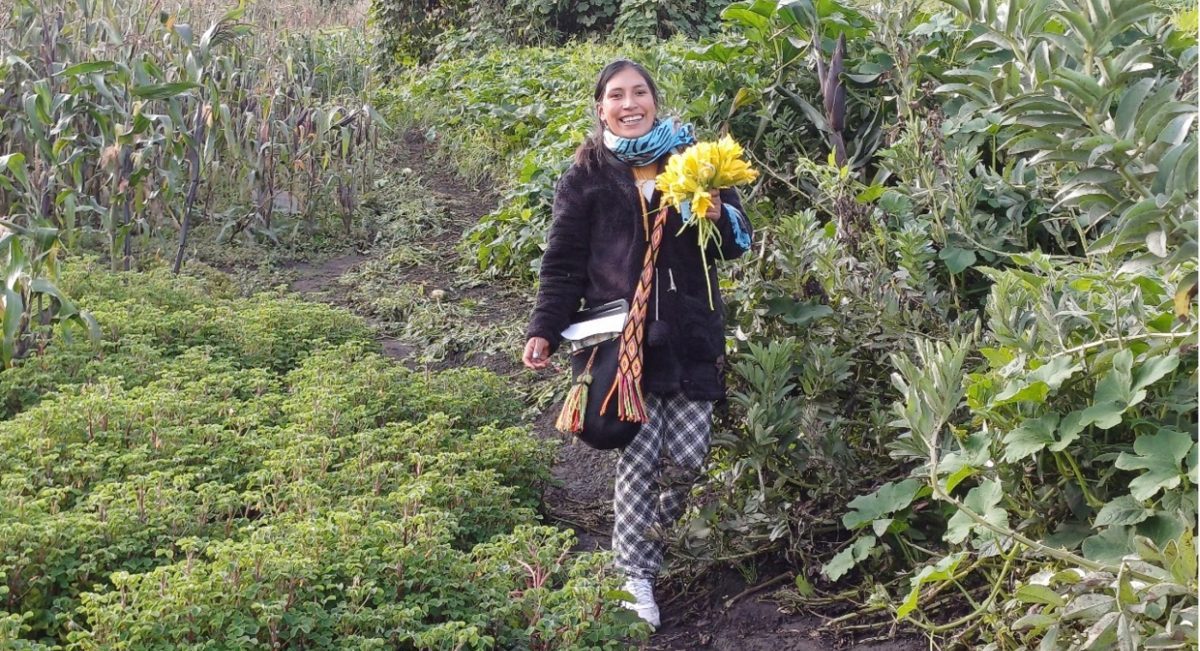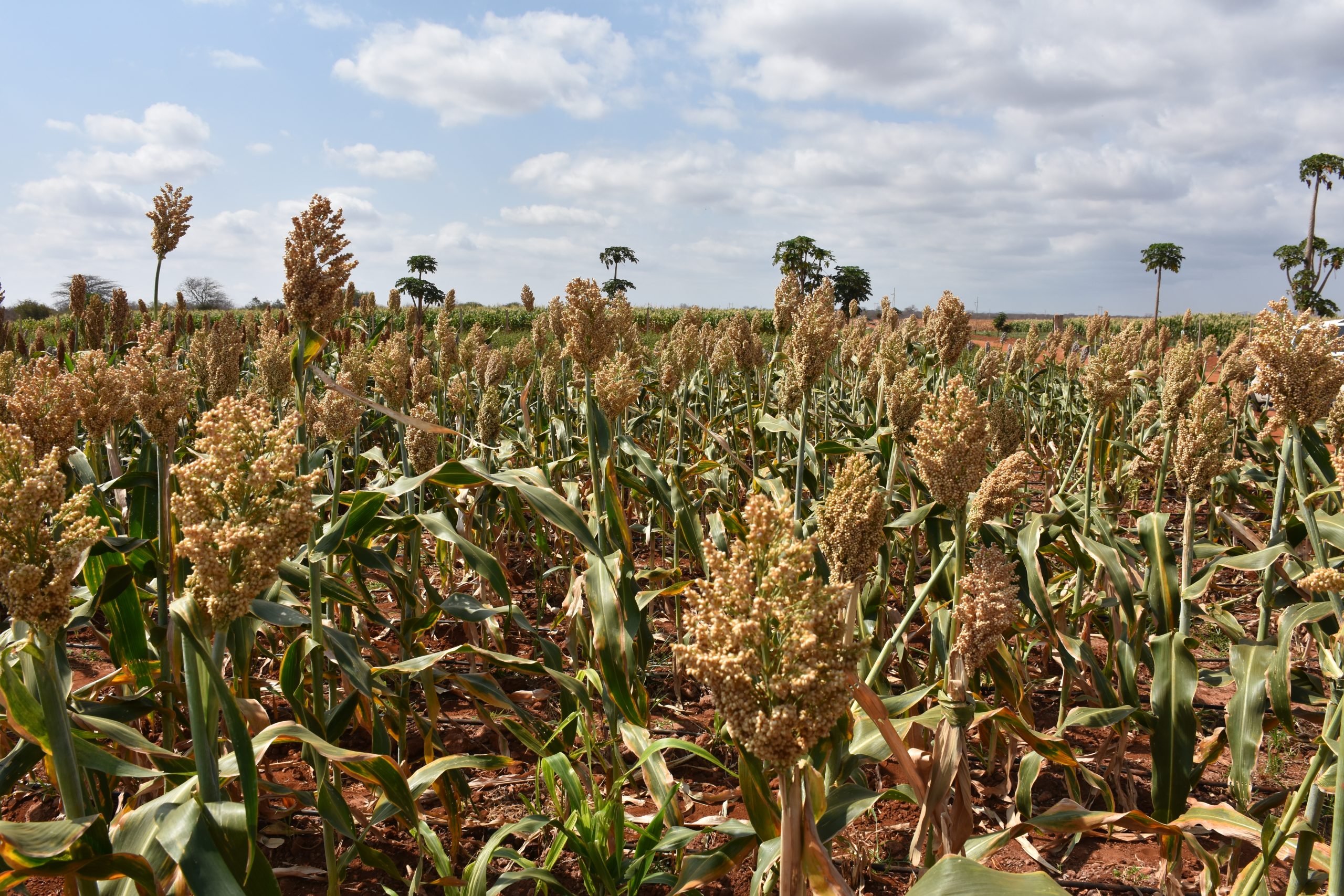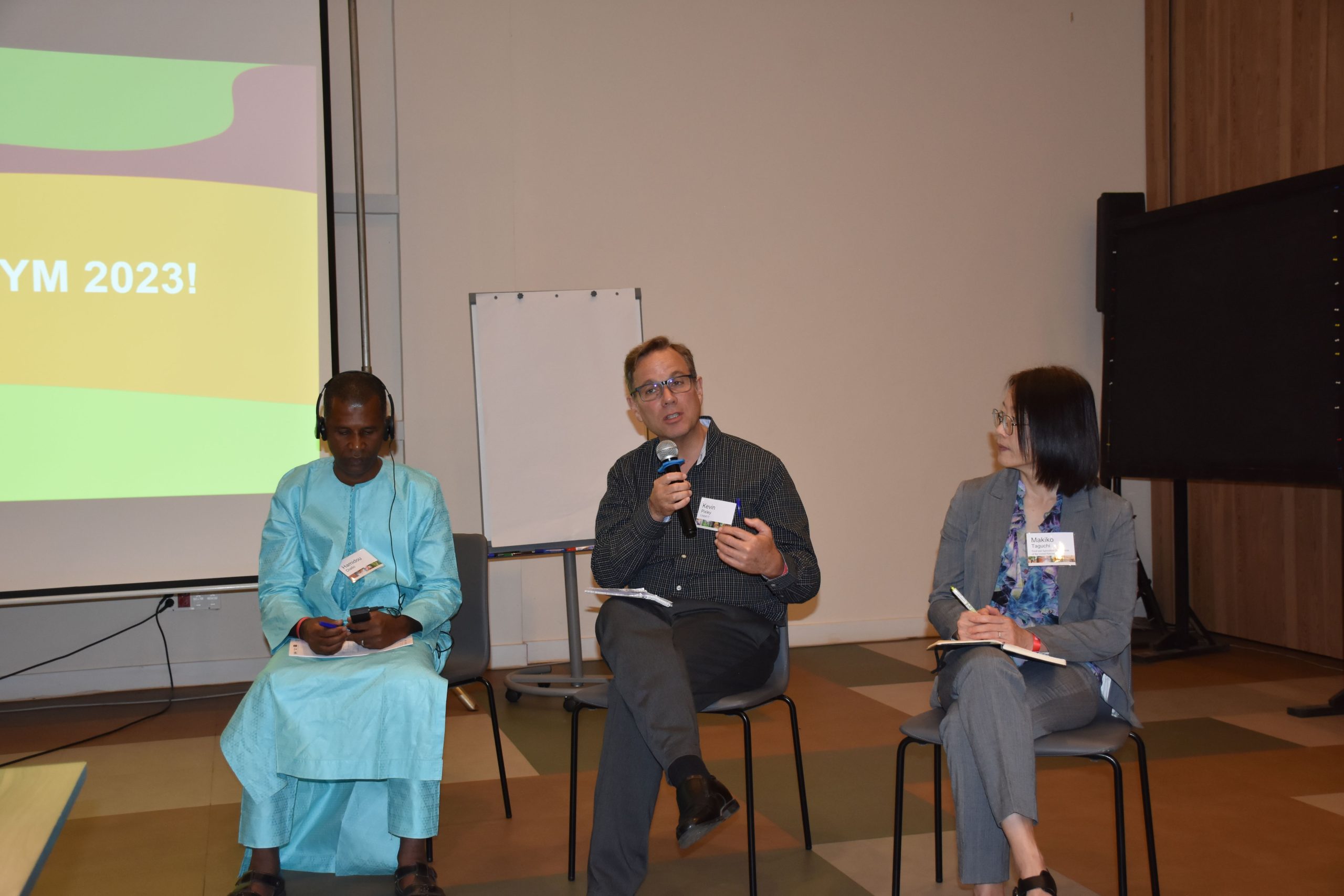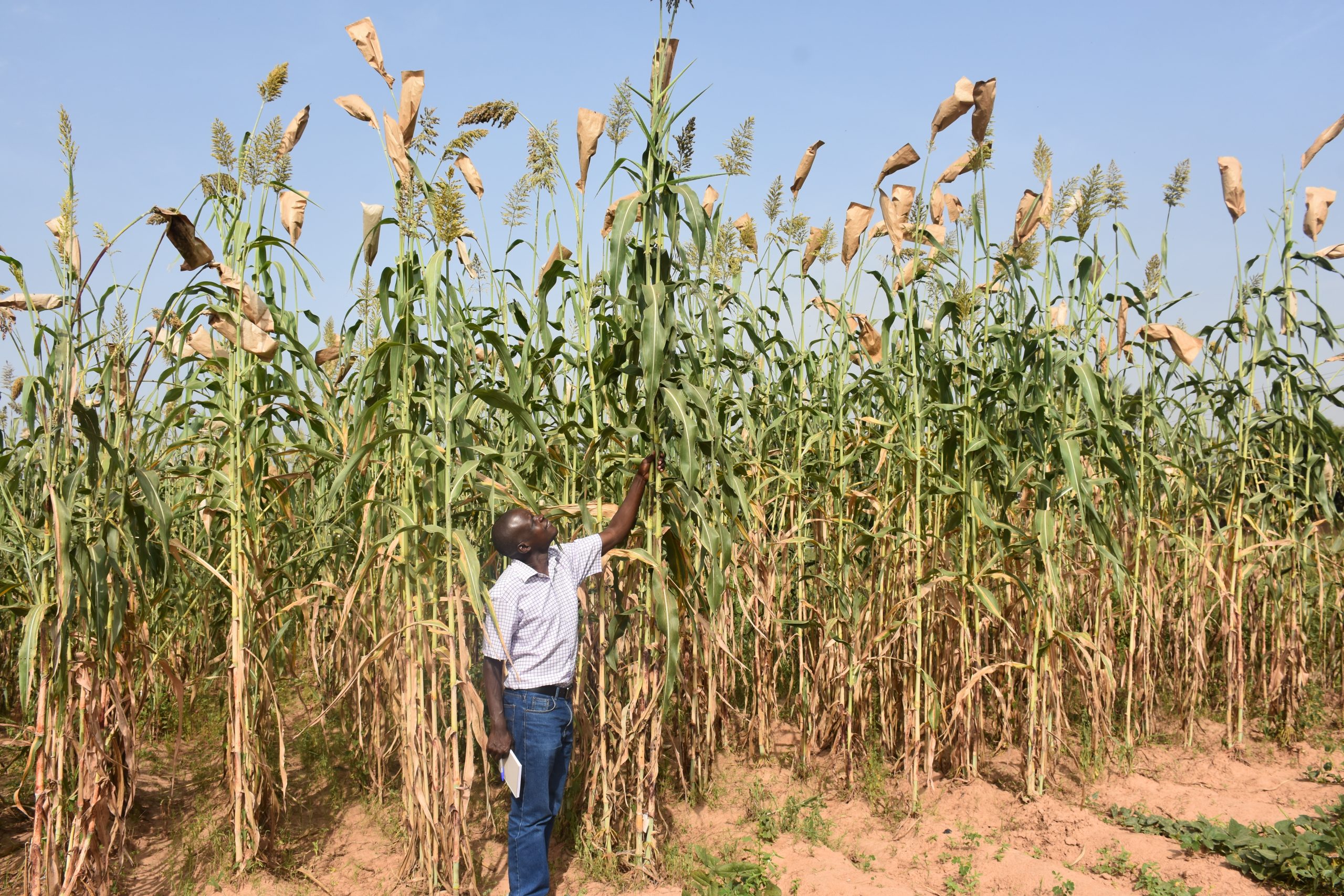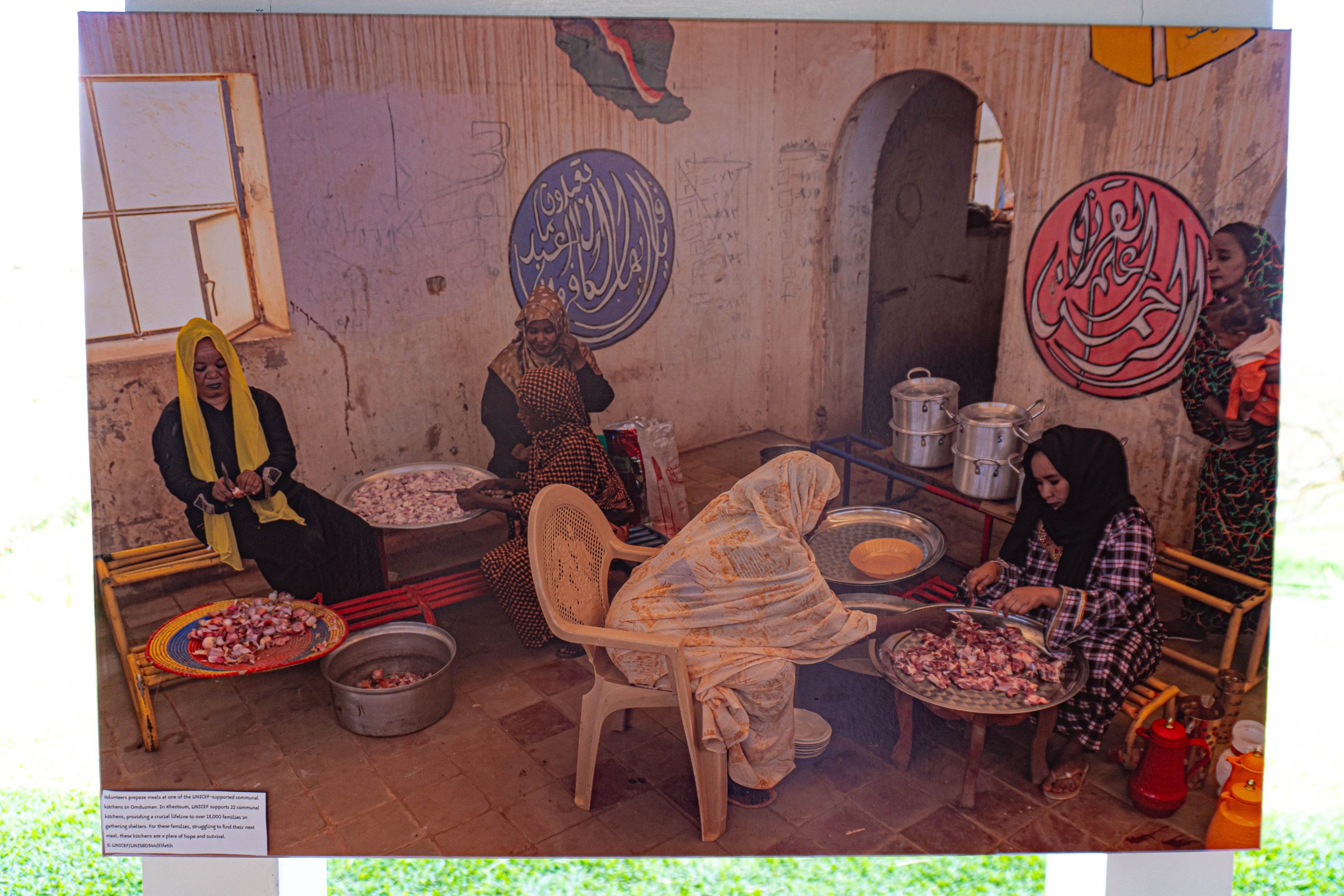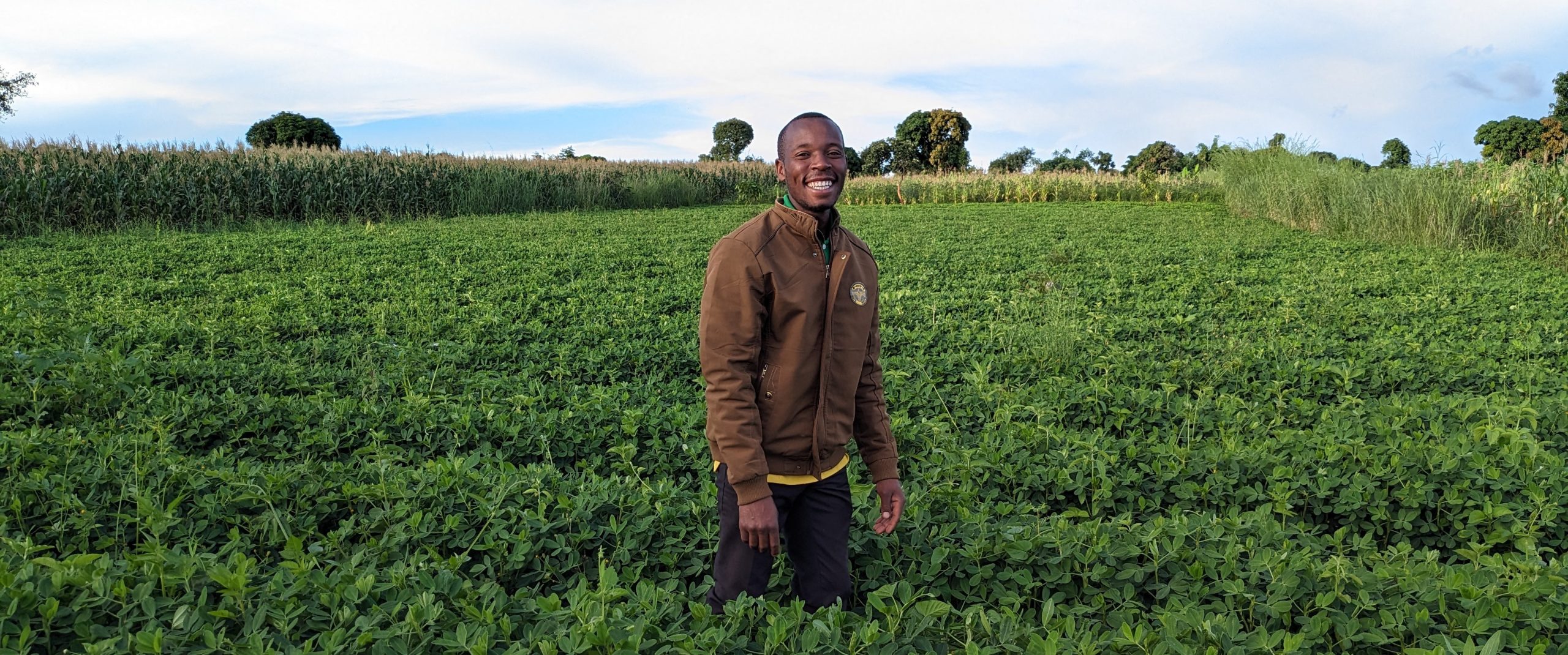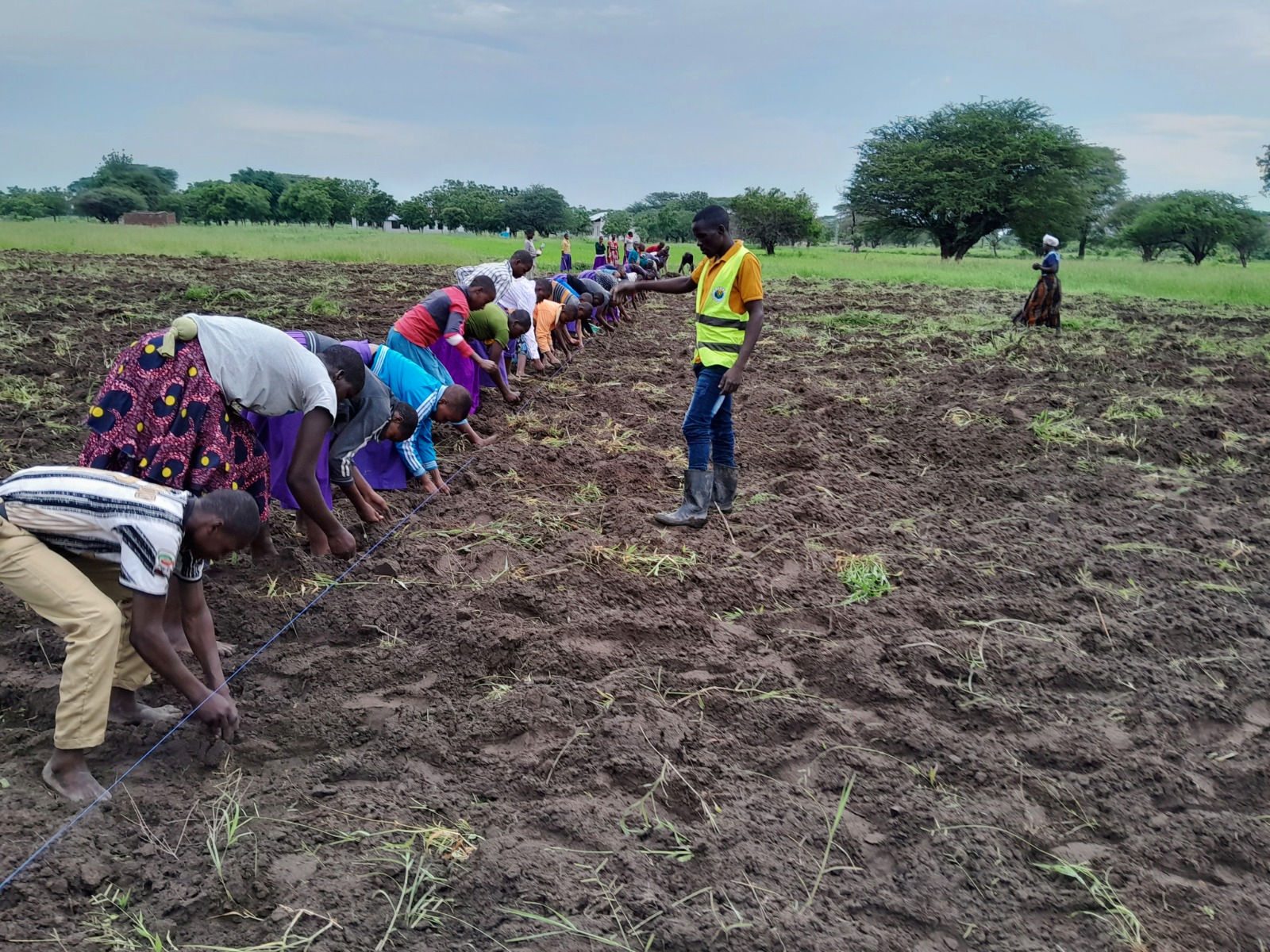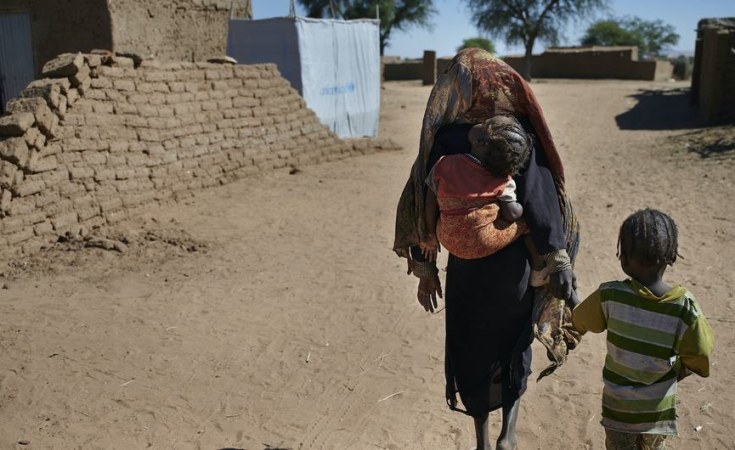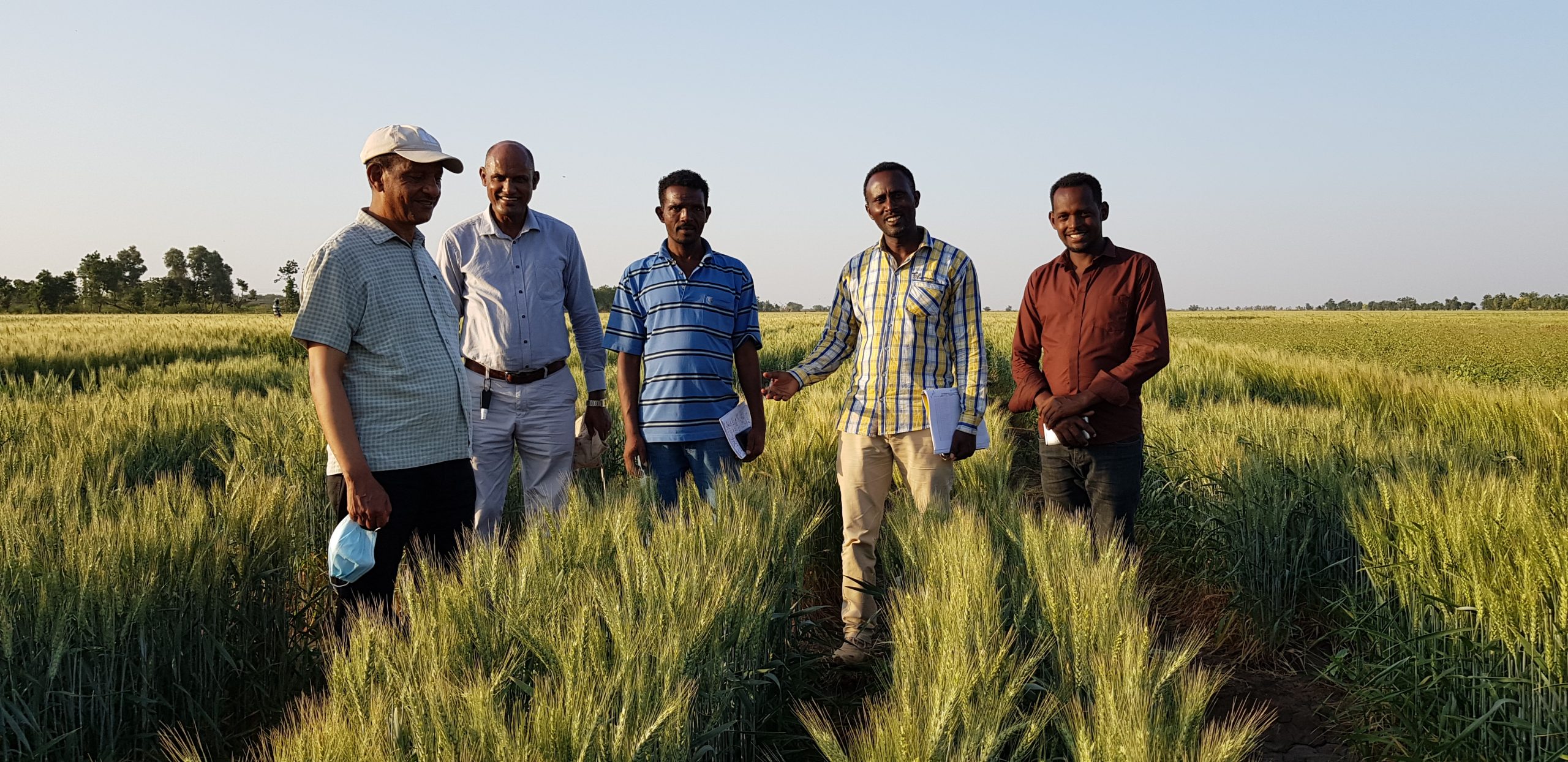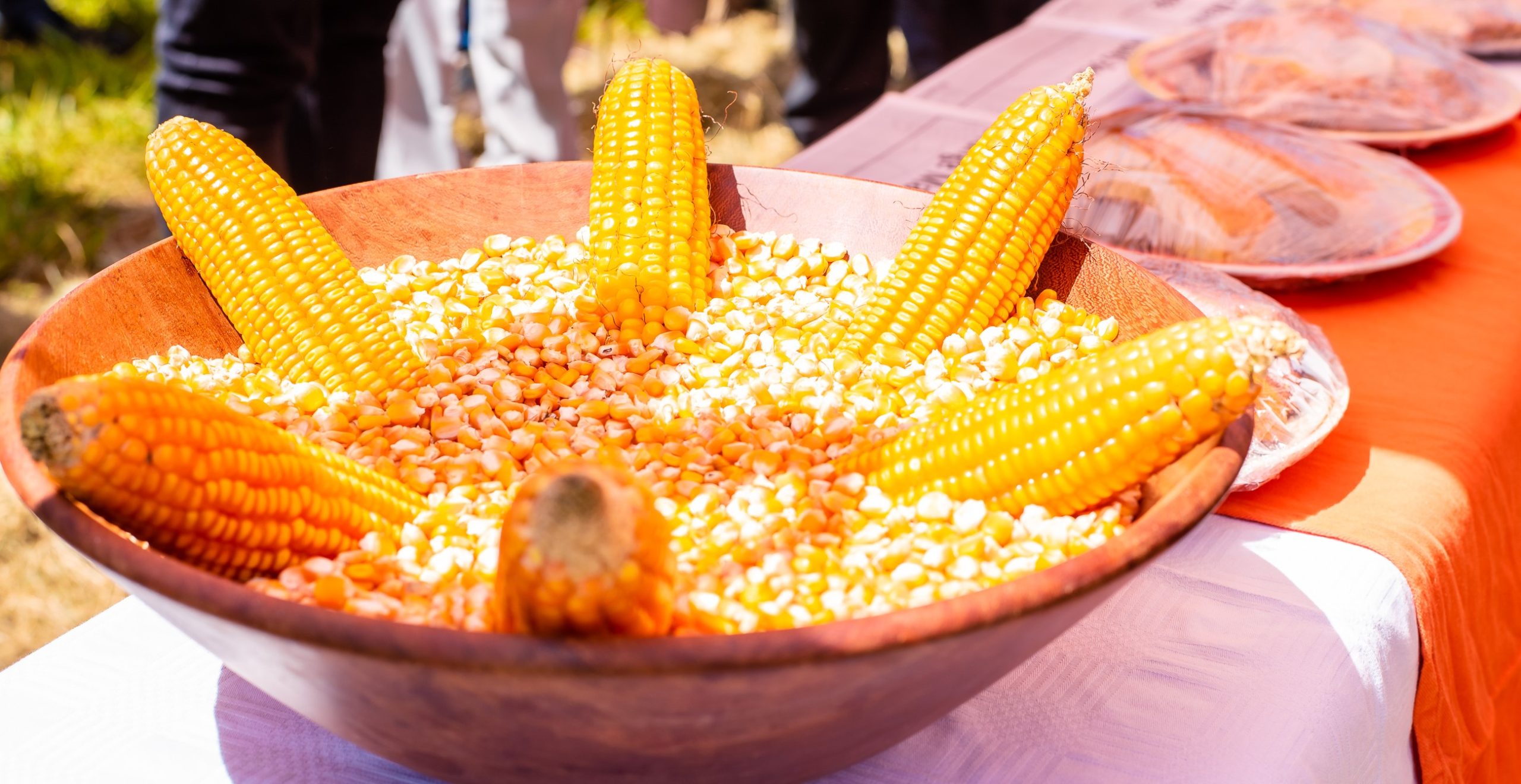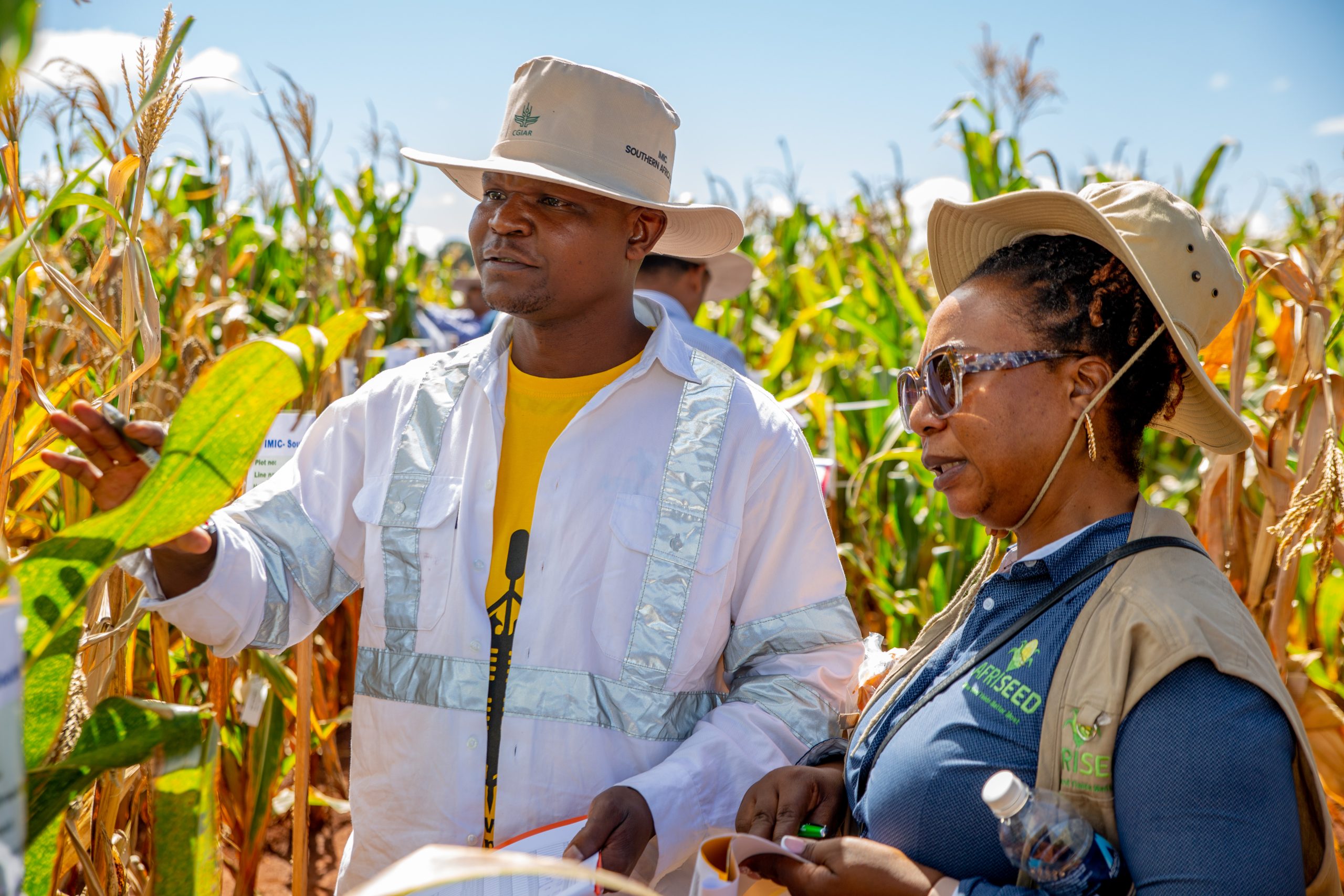Nutrition, health and food security
As staple foods, maize and wheat provide vital nutrients and health benefits, making up close to two-thirds of the world’s food energy intake, and contributing 55 to 70 percent of the total calories in the diets of people living in developing countries, according to the U.N. Food and Agriculture Organization. CIMMYT scientists tackle food insecurity through improved nutrient-rich, high-yielding varieties and sustainable agronomic practices, ensuring that those who most depend on agriculture have enough to make a living and feed their families. The U.N. projects that the global population will increase to more than 9 billion people by 2050, which means that the successes and failures of wheat and maize farmers will continue to have a crucial impact on food security. Findings by the Intergovernmental Panel on Climate Change, which show heat waves could occur more often and mean global surface temperatures could rise by up to 5 degrees Celsius throughout the century, indicate that increasing yield alone will be insufficient to meet future demand for food.
Achieving widespread food and nutritional security for the world’s poorest people is more complex than simply boosting production. Biofortification of maize and wheat helps increase the vitamins and minerals in these key crops. CIMMYT helps families grow and eat provitamin A enriched maize, zinc-enhanced maize and wheat varieties, and quality protein maize. CIMMYT also works on improving food health and safety, by reducing mycotoxin levels in the global food chain. Mycotoxins are produced by fungi that colonize in food crops, and cause health problems or even death in humans or animals. Worldwide, CIMMYT helps train food processors to reduce fungal contamination in maize, and promotes affordable technologies and training to detect mycotoxins and reduce exposure.
Children, native maize, and gender perspectives
 Gender equality, youth and social inclusion
Gender equality, youth and social inclusion
In Colombia, sustainable agriculture specialists are developing participatory diagnostics that will pave the way for agricultural biodiversity conservation. Inclusive workshops for children providing childcare during workshops and training events have helped empower women by increasing their ability to participate.
Launch of a new Global Partnership for the Vision for Adapted Crops and Soils initiative
 Capacity development
Capacity development
FAO and CIMMYT team up to boost traditional nutrient-rich, climate-resilient crops and healthy soils to enhance diet quality for today and tomorrow.
Transforming agricultural systems in Mozambique
 Gender equality, youth and social inclusion
Gender equality, youth and social inclusion
The Transformative Dryland Crops Project hopes for greater food security and increased income in northern Mozambique.
Transforming agriculture in sub-Saharan Africa: a new dawn for millet production
 Climate adaptation and mitigation
Climate adaptation and mitigation
As climate challenges intensify, a groundbreaking initiative is underway to revolutionize millet production in sub-Saharan Africa, leveraging the crop’s resilience and nutritional benefits to ensure sustainable food systems. A multi-faceted approach to enhancing millet production sets the stage for future initiatives and research aimed at realizing the full potential of millets in Africa.
G7 summit highlights importance of sustainable food systems
 Climate adaptation and mitigation
Climate adaptation and mitigation
CIMMYT contributes to the G7 goals on agricultural productivity, food security, and climate change through the Vision for Adapted Crops and Soils initiative.
Harvesting diversity and feeding hope: unlocking the potential of potatoes
 Capacity development
Capacity development
Working with partners, CIMMYT’s Sustainable Agrifood Systems Approach for Sudan (SASAS) program empowers farmers and herders in Sudan to move towards self-sufficiency. Helping Sudanese farmers integrate potato and sweet potato into their agricultural production systems to enhance food security and crop diversity is one of the program highlights.
CIMMYT calls for direct agricultural investment to address Sudan’s food crisis
 Climate adaptation and mitigation
Climate adaptation and mitigation
CIMMYT proposes actions to respond to the deteriorating food crisis catalyzed by the ongoing civil war in Sudan.
Specialist centers empower women and youth farmers
 Capacity development
Capacity development
Targeted support for underrepresented groups of farmers is increasing crop variety, agronomic skills, household income, and food production in Tanzania’s Songwe region.
Quality seeds reduce hunger in Tanzanian schools
 Gender equality, youth and social inclusion
Gender equality, youth and social inclusion
Sorghum seeds that deliver improved yields are increasing food security for students and communities, with school farms playing a vital role in raising awareness of innovative varieties.
Sudan: Catastrophic hunger amid conflict creates a crisis of instability across northeast Africa
 Gender equality, youth and social inclusion
Gender equality, youth and social inclusion
CGIAR calls for a coordinated, global response to support the transformation of agrifood systems in Sudan.
New heat-tolerant wheat varieties prove fruitful for Ethiopia’s irrigated lowlands
 Climate adaptation and mitigation
Climate adaptation and mitigation
The release of new lines by the ADAPT-Wheat project will expand Ethiopia’s total farming area and wheat production by opening up lowland farming opportunities.
Cultivating healthier communities with provitamin A maize varieties
 Nutrition, health and food security
Nutrition, health and food security
A CIMMYT-led study highlights how provitamin A maize could make a real difference in vitamin A intake of smallholder farmers in rural areas of Zimbabwe.
Unlocking genetic innovations through collaborative pathways
 Climate adaptation and mitigation
Climate adaptation and mitigation
The International Maize Improvement Consortium for Africa field day in Harare enabled CIMMYT to showcase genetically diverse maize lines, have structured dialogues with diverse stakeholders, and review and refine breeding strategies and approaches.
Over 5,000 Busia farmers to benefit from Kalro certified millet seed
 Nutrition, health and food security
Nutrition, health and food security
Source: The Star ()
